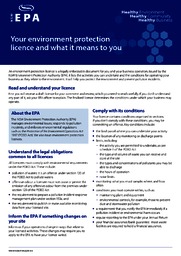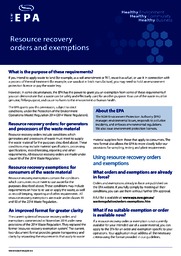Regulations and licensing
In NSW, acts and regulations govern waste management. Those who handle, store, transport, process, recycle and dispose of waste must follow these rules to minimise harm to human health and the environment.
Managing household waste
Reducing waste can save money, conserve resources, save energy and water, and reduce pollution.
Waste facilities
In NSW, the waste regulatory framework establishes a level playing field for operators of waste and recycling facilities.
- Landfill operations
- Local council operations
- Organics processing facilities
- Energy recovery facilities
Waste levy
In NSW, regulations require certain licensed waste facilities to pay a contribution for each tonne of waste received at the facility. This ‘waste levy’ aims to reduce the amount of waste being landfilled and promote recycling and resource recovery.
EPA-licensed landfills
Scheduled waste disposal facilities (EPA-licensed landfills) that are located in the regulated area or receive waste from the regulated area are liable to pay the waste levy.
Managing industrial waste
Some types of waste have specific regulatory requirements in addition to the general waste regulations.
Disposing of waste
To help waste generators classify the wastes they produce, the EPA has developed step-by-step Waste Classification Guidelines. Know what types of waste are carried on your vehicle, and comply with the law when transporting waste.
Tracking and transporting hazardous waste
The transport of some wastes presents a high risk to the environment. These wastes must be tracked when transported into, within or out of NSW.
Tracking Metropolitan Levy Area waste
All waste generated in the Metropolitan Levy Area must be tracked when transported out of NSW (10 tonnes or more).
Waste and crisis management
Before communities can rebuild after disasters they may first need to safely dispose of waste and debris from storms, bushfires, flood, building fires and other major incidents.






